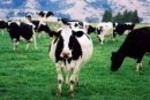
Origin Green , as the programme has been dubbed, is based around a sustainability charter launched in June, with suppliers pledging to reach independently verified benchmarks for several aspects of their supply chains, including carbon emissions, water use, biodiversity and waste management. Its development followed industry-wide research that suggested sustainability was no longer an isolated issue, but one that was being built into the fabric of business strategies and new business initiatives.
Speaking with FoodNavigator, CEO of Bord Bia Aidan Cotter said retailers and food manufacturers generally perceived Irish food production as environmentally friendly, but there was a need for verification.
“The message we had from industry was that we were perceived as green and natural, but we had to prove it,” he said. “…It represents the ambition of a whole industry that seeks to become a world leader in sustainability in food and drink.”
Bord Bia set a target that by 2014, three-quarters of Ireland’s food exporters would be participants in the scheme and, to date, nearly half are already preparing sustainability plans, Cotter said.
“We have found that our customers are looking for this. …Businesses are setting out targets and goals that they have to meet, and they are relying on suppliers to help them do that.”
Cotter cites major firms including Nestlé, Unilever, Sainsbury’s and Walmart, which have all set out sustainability goals.
Nine pilot companies are due to file plans under the programme over the next month or two, including the Kerry Group, Glanbia (Dairy Ingredients Ireland), Marine Harvest, Country Crest, Dawn Farm Foods, Flahavans, Irish Distillers, ABP Food Group and Errigal Seafood.
To date, Bord Bia has carbon footprinted 20,000 farms, Cotter said, and it is adding to that number at a rate of 500 a week.
According to recent research conducted by the EU Commission, Ireland has among the lowest carbon footprints for dairy and beef production in the EU, and one of the lowest water stress levels, providing it with a competitive advantage from a sustainable supply perspective.





